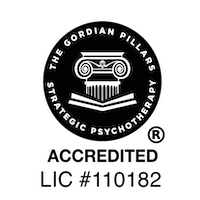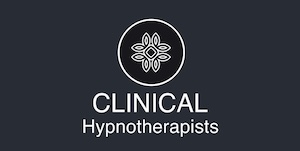Brief and effective treatment to restore quality sleep
Insomnia
Sleepless nights can often feel like they’ll never end.
- You find yourself tossing and turning.
- Your mind races as you lie wide awake with worries, regrets and mistakes you’ve made in the past.
- Perhaps you can eventually fall asleep and drift off, but all of a sudden you have to go to the bathroom, or there’s a noise, like a loud snoring partner – leaving you feeling exhausted and frustrated.
The lack of sleep is really getting to you now. You’re constantly drained, feeling like absolute crap – where you lack the energy and motivation to get up and face the simplest of tasks.

Is this you? Common signs and symptoms of Insomnia
- You’ve said it to yourself and others more than you can count, “I’ve always been a bad sleeper”, or “I have trouble falling asleep”.
- You’re tired all day, but the moment your head hits the pillow, your mind lights up and decides to overthink everything.
- You lie there, either replaying awkward moments of the day, every single mistake you’ve made in the past, or worrying about tomorrow – even though you know you need sleep.
- You stare at the ceiling, then check the clock… again… doing calculations: “If I fall asleep right now, I’ll only get 4 hours”.
- You’ve tried it all – sleep apps, herbal teas, melatonin, magnesium – but nothing sticks.
- The littlest of things keep you up like itchy hair, weird noises, hot/scratchy pillow – your body just won’t settle.
- You might even feel anxious before bed, dreading another night of crap sleep and waking up tired again for tomorrow.
- You feel you should be able to sleep like everyone else, but the harder you try, the worse it gets.
Insomnia isn’t a one-size-fits-all. It shows up in three different phases – whether it’s difficulty falling asleep, waking up in the middle of the night, or getting up too early and feeling unrested. More often than not, insomnia is attributed to a busy, racing mind at the core, and made worse by poor sleep hygiene/habits. At The Inward Process, we understand insomnia is like a fingerprint – unique to your patterns, lifestyle and the way your mind processes the day. That’s why our approach goes deeper than surface level solutions to treat your insomnia.
FREE 20 MINUTE CONSULT
We understand that taking the first step can feel daunting, which is why we’ve made it risk free for you. At The Inward Process, we offer a FREE 20-minute consult – by phone or Meets – so you can determine how this process works and decide if it’s right for you. There’s no pressure. No obligation. If at any point you feel during the call it’s not the right fit – we’ll simply stop. No questions asked and no cost to you. You’re reading this now, so why not click below and see where it takes you?
Hi, I'm Matthew
Your Local Strategic Psychotherapist and Clinical Hypnotherapist in Albury Wodonga
Hello, I’m Matthew, and welcome to The Inward Process, proudly serving Albury Wodonga and clients online. I specialise in helping people break free from the exhausting cycle of insomnia. Together, we’ll use strategic, tested, and proven methods to help you address the underlying patterns that keep you stuck in sleepless nights, so you can finally reclaim restful, refreshing sleep and wake up with renewed energy.
Each session is uniquely tailored to you, understanding that your experience with insomnia is specific to your life and the challenges you face. Our work will focus on equipping you with the tools and strategies to not only manage sleeplessness but to overcome the root causes behind it—building a foundation for long-lasting, natural sleep.
Having personally struggled with the effects of overthinking, stress, and the habits that disrupt healthy sleep, I understand how difficult it can be to switch off the mind when bedtime comes. I know how these patterns can leave you feeling out of control and how a lack of sleep can impact every part of your life. The strategic methods and techniques that helped me break free from these cycles are the same tools I use to guide others in overcoming the habits of overthinking, stress, and worry that keep the brain too active for sleep.
At The Inward Process, I’ve supported clients from all backgrounds—from students to busy professionals—helping them move past the patterns that keep them up at night, and finally experience the relief of a full, uninterrupted night’s sleep. My commitment is to provide a supportive, results-oriented environment where you feel empowered to create meaningful change. Together, we’ll work to make restful sleep part of your routine, so you can wake up feeling refreshed, recharged, and ready for each new day.






How do we address Insomnia?
Addressing insomnia begins by ruling out any underlying physical or medical conditions that might be disrupting your sleep. One important condition to consider is sleep apnea – a condition that causes interruptions in breathing during sleep. To determine if any physical/medical conditions are involved, a comprehensive sleep test is recommended. Once physical conditions like sleep apnea are ruled out or are being managed, we can develop a tailored treatment plan to address your insomnia.
Sleep is as unique as you are
Struggling with sleep doesn’t always look the same – and that’s why quick fixes don’t work long term. To restore deep, quality sleep, it’s important first to understand how your sleep is being disrupted.
Insomnia can show up in a few distinct phases:
- Primary Insomnia: You have trouble falling asleep, where your mind starts racing as your head hits the pillow. You struggle switching off, even when you’re tired. Hours pass, you’re still wide awake.
- Secondary Insomnia: You fall asleep, but eventually wake up during the middle of the night. Whether it’s noise, body discomfort, overthinking, or frankly no reason at all, your brain is racing with thoughts – restless, yet alert.
- Terminal Insomnia: You find yourself waking up way before the alarm, caught in limbo between the body feeling tired and mind buzzing loudly. You’re already drained and exhausted, knowing the day hasn’t even started.
Each pattern has its own drivers – whether it’s stress, mental overload (known as cognitive arousal), internal pressure, or poor sleep habits and evening routines that signal the brain to stay awake instead of unwinding down.
At The Inward Process, we help you identify the root causes behind your unique sleep struggles. Once we rule out any underlying physical issues, we look at the process – the thoughts, routines, emotional triggers and internal patterns that are keeping you stuck.
Insomnia isn’t random. It’s a learned cycle – and with the right tools and techniques, it can be unlearned. You’ll be guided through specific strategies to help calm your mind, shift unhelpful sleep behaviours, and builder a healthier relationship with rest.
The goal isn’t to sleep. It’s to stay asleep.
To wake up feeling clear, calm, energised again, where we can leave insomnia in the past.
What we offer

Personalised Sessions to overcome Insomnia
Every session is tailored to you, helping you understand the root causes of why falling asleep can be so difficult. Most importantly, not just manage symptoms – but overcome insomnia effectively.

Break free from the cycle of Insomnia and reclaim control

Develop lifelong skills and lasting change
Learn practical, empowering tools and strategies to calm your mind, reset your sleep rhythms, and respond to nighttime restlessness with confidence and ease. These lifelong skills will support lasting, restorative sleep—and help you wake up clear-headed, energised, and ready to take on the day.
FREE Individual Recordings
Directly to Your Phone
Good therapy teaches you to operate differently in the world. We give you a range of resources to help discover a new way of being
Discover What is Possible
Frequently Asked Questions
Not sure yet? Here are the answers to some common questions
Insomnia is a sleep disorder that affects a person’s ability to fall asleep, stay asleep or achieve restful sleep despite having the opportunity to do so. It can lead to fatigue, mood disturbances, many health problems and overall difficulty functioning in daily life.
Common signs of insomnia include:
- Difficulty falling asleep
- Waking up frequently during the night, or waking up too early and being unable to go back to sleep
- Overthinking everything
- Headaches
- Feeling tired upon waking
- Daytime fatigue and irritability
- Trouble concentrating
- Anxiety/worry about sleep
- Primary insomnia: Difficulty falling asleep at the start of the night, often taking an hour or more to drift off.
- Secondary insomnia: Falling asleep initially but waking up in the middle of the night and struggling to return to sleep.
- Terminal insomnia: Waking up too early, often an hour or more before the intended wake up time/alarm, and being unable to go back to sleep, or choosing to get up since they are awake.
Insomnia can be caused by a range of factors:
- Medical or physical condition including sleep apnea
- Poor sleep hygiene practices/habits (staying up late with screen time, watching “one more episode” for example).
- Stress/anxiety with the inability to unwind and switch off for a good night’s sleep.
- Cognitive arousal – where the mind is in a state of looped thinking, where you think about all the stuff you have to do tomorrow, or all the mistakes you’ve made in the past.
- Substance/alcohol abuse – where you use alcohol to fall asleep, but then you can’t fall back asleep (secondary insomnia). Or caffeine, makes you stay up, unable to unwind.
- Environmental factors like noise, concerns of safety, or an uncomfortable sleeping environment.
Insomnia can be a symptom of various conditions including anxiety, chronic stress, depression, or physical conditions such as pain and breathing problems (sleep apnea). It can be associated with lifestyle factors, such as irregular work schedules, or excessive use of electronic devices before bed.
Insomnia is common due to a very fast paced, high stress nature of modern life. Many people struggle with balancing work, family and personal life, leading to cognitive arousal at night, difficulty compartmentalising stress/anxiety, and disrupted sleep patterns. Technology before bed, poor sleep habits and unhealthy lifestyle choices also contribute to the prevalence of insomnia.
Chronic insomnia can lead to a range of serious health problems, including increased risk of heart disease, diabetes, high blood pressure and weakened immune function. It also impacts cognitive function, leading to problems with memory, concentration and decision making, Insomnia can lead to the increased likelihood of mental health problems, including depression, anxiety and addictions.
Stress can significantly disrupt sleep by keeping the body and mind in a heightened state of alertness. When you’re stressed, your brain releases hormones like cortisol and adrenaline, which increase heart rate and mental activity, making it difficult to relax and fall asleep. Stress often leads to overthinking or worry at night, preventing the mind from winding down. It can also interfere with the natural sleep-wake cycle, making it harder to stay asleep or achieve restful, deep sleep. Chronic stress can exacerbate this cycle, leading to long-term sleep difficulties if not addressed.
· It’s just about not falling asleep: Insomnia also includes difficulty staying asleep or waking up too early.
· I can catch up on sleep later: Chronic insomnia doesn’t resolve with “catching up” and can lead to long-term health problems.
· Sleeping pills are the only solution: Medications can be a short-term aid but don’t address the root causes of insomnia.
· If I stay in bed longer, I’ll sleep eventually: Staying in bed awake reinforces the brain’s association of bed with wakefulness, worsening the problem.
· Insomnia is a lifelong condition: Many people can overcome insomnia with proper treatment and changes in habits.
· Drinking alcohol before bed helps you sleep: Alcohol might make you feel drowsy, but it disrupts deep sleep stages, leading to poorer-quality rest and frequent awakenings.
· It’s okay to use screens right before bed if I’m tired: The blue light from screens can suppress melatonin production, making it harder to fall asleep, even if you feel drowsy.
Strategic Psychotherapy is a brief, solution oriented therapy, originally termed from Jay Haley, that addresses the underlying patterns and thought processes contributing to insomnia. Rather than just treating the symptoms, it identifies and works to change the habitual cognitive and behavioural cycles—like overthinking, stress, and negative associations with sleep—that prevent restful sleep. Through tailored strategies, clients learn to manage these patterns and develop healthier habits for long-term relief.
- A 20 minute discovery session, followed by the completion of the client intake form.
- A strategic interview lasting about 30-35 minutes (the initial interview around 45-60 minutes to identify the client’s desired outcomes, strengths, resources, underlying patterns, processes and what is contributing to the presenting issue).
- A 15 minute hypnotic session.
- A 5-10 minute debrief, overview and moving forward.
Clinical Hypnotherapy isn’t about mind control or what you’ve seen in movies. Clinical hypnotherapy is a therapeutic tool that uses guided relaxation and focused attention to help clients access a state where the mind is more open to positive suggestions and behaviour changes. For insomnia, hypnotherapy addresses issues such as anxiety, stress, and overactive thoughts by helping clients enter a deeply relaxed state, allowing the brain to rewire associations with sleep and calm the mind before bed. Because you don’t deliberately stay up wide awake, but you have to work at the unconscious level, to address the underlying issues for insomnia.
For addressing insomnia, the initial session has an extended interview, giving the initial session total time of 90 minutes. The following sessions are 60 minutes. This is designed to be in-depth to explore the problem and address the root causes of insomnia effectively, while providing practical strategies and tools that the client can use immediately.
For overcoming insomnia using strategic psychotherapy/clinical hypnotherapy sessions, depending on how complex your presenting issues are and how well you learn and engage in the process, you can typically expect to see changes in the first few sessions, and typically, you can expect you can expect to see significant results between 4-6 sessions.
Yes, clinical hypnosis is a safe and effective method for treating insomnia when conducted by a trained and certified clinical hypnotherapist. It involves guiding clients into a deeply relaxed state where they can address the underlying causes of their sleep difficulties, such as stress, overthinking, or negative associations with sleep. Unlike medications, hypnotherapy has no physical side effects and doesn’t carry the risk of dependency. It focuses on helping clients retrain their minds to promote natural, restful sleep.
Yes, online therapy can be just as effective as in-person sessions for treating insomnia. Strategic Psychotherapy and Clinical Hypnotherapy work well in a virtual setting via Google Meets or Zoom for example, allowing clients to receive guidance and therapeutic interventions in the comfort of their own home. Research supports the effectiveness of online therapy, and many clients find it equally beneficial for managing and overcoming insomnia.
Yes, for clients who wish to reinforce their sessions, we will provide a voice recording of the hypnotherapy session. This will allow you to revisit key strategic themes, relaxation techniques and reinforce suggestions whenever you need them for insomnia. We will always ask for your consent if you wish to have your personalised audio hypnotherapy recording.
Insurance coverage for Strategic Psychotherapy and Clinical Hypnotherapy varies depending on your provider and plan. Some policies do offer partial or full coverage for these treatments. We recommend checking with your insurance provider to confirm whether hypnotherapy or psychotherapy is covered for insomnia treatment.
